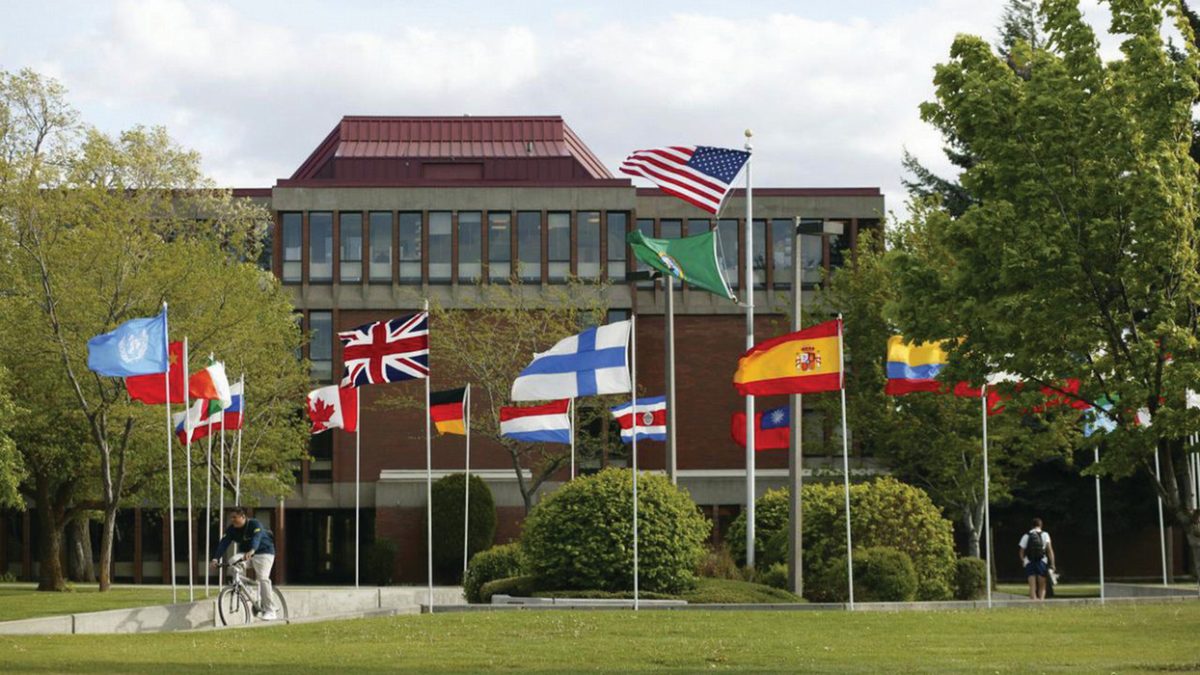The North Academic Complex, which is set to replace the Language and Literature building and Farrell Hall, will be built to be more sustainable by including geothermal heating and solar panels. The complex is set to finish in 2026 and will take the place where the flag plaza is.
According to CWU’s Sustainability Officer, Jeff Bousson, the GeoEco center, which connects the complex to geothermal heating, will sit across the street.
“The North Academic Complex and the GeoEco center is going to be the most tangible and concrete example demonstrating our commitment to sustainability and climate change,” Bousson said.
According to Joe Chanes, project manager in the capital projects in the planning department, this project will be using the Open Loop Geothermal well system. For this system water that is about 1000 feet underground will be extracted, this water is naturally heated by the earth’s core.
“This water will be sent to our GeoEco plant where a geothermal pump that features a water-to-refrigerant heat exchanger coil to heat and cool the building water supply,” Chanes said. “Once the water leaves the GeoEco plant, it is safely directed back to the discharge well which puts the water back into the aquifer.”
Bousson said the Samuelson Hall, Discovery Hall and the Health Science Building are all geothermal-ready and hopefully in the future they will be able to connect those buildings to geothermal heating.
“All of our other buildings need to be converted to be able to leverage geothermal,” Bousson said. “We’re going to be building out over the next 10 [to] 15 years.”
This complex will help the community decrease its pollution. Currently, CWU uses the most electricity and natural gas in the city. Around 30-35%, according to Bousson.
“95% of all of our greenhouse gas emissions at CWU contributes to the atmosphere that contributes to climate change comes from heating, cooling and powering our buildings,” Bousson said. “The North Academic Complex and especially as we connect to the 500,000 square feet of additional buildings here on campus, that is going to lower our consumption of natural gas.”
Ellensburg has to buy carbon allowances, which Bousson said are basically an allowance to pollute. He said that, in theory, the less natural gas CWU consumes, the fewer allowances the city has to purchase.
Chanes said that the geo eco-center is going to have interactive education aspects for people to learn about how geothermal heating is helping.
“We’re thinking about doing a holographic, interactive [display] on the windows that show the real-time you know, cost savings, energy savings that the geothermal plant is putting out,” Chanes said.
According to Chanes, when building, it is important to keep sustainability in mind for longevity, reducing CWU’s carbon footprint and also setting an example for other colleges.
“This will be the largest geothermal project on any campus in the entire state,” Chanes said.
Besides being more sustainable, Chanes said that the North Academic Complex will also feature a mock courtroom and a TED Talk-style auditorium.
Bousson said that the project is collaborating with the Yakama Nation and purchasing wood from Yakama Forest Products is going to be used in the construction of the complex.
“We will be able to partner with them to develop an exhibit or develop a display on one of the walls on the first floor at the North Academic Complex, communicating the story of the Yakama Nation as well as the sourcing of the timber to construct,” Bousson said.








